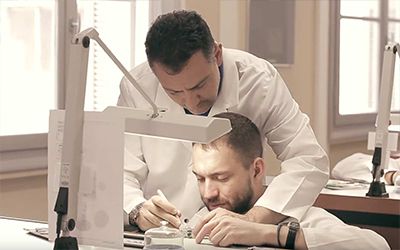Learning the Art of Watchmaking in the Modern Era: A Long-Term Academic Investment
Watchmaking - the art and science of crafting, repairing, and maintaining timepieces - has a long and respected history.
In today’s world, where technology dominates many aspects of daily life, learning watchmaking retains its prestige and significance.
It is an art that requires skill, patience, and attention to detail, making it both demanding and rewarding. This article will explore the cost of learning watchmaking and explain why it is a long-term academic investment.
The Cost of Learning Watchmaking
Pursuing an education in watchmaking can be expensive, but the benefits outweigh the costs. The cost of training varies depending on the institution, the level of education, the availability of tools and equipment, and the course duration. On average, tuition fees at a watchmaking school range from €10,000 to €35,000 per year.
Beyond tuition, there are additional expenses to consider, depending on what each school provides. These may include:
- Tools and Equipment: Purchasing the necessary tools for training can cost between €1,000 and €3,000. These tools include precision tweezers, magnifying lenses, and other specialized instruments essential for hands-on practice.
- Books and Educational Materials: Textbooks and other learning resources may add an extra €200 to €500 per year.
- Accommodation and Transportation: For trainees who do not live near their school, housing and commuting expenses can significantly increase the total cost of education.
A Long-Term Academic Investment
Despite the high initial cost, learning watchmaking is considered a long-term academic investment. Here’s why watchmaking education is worth it:
- High Demand for Skilled Watchmakers: Skilled watchmakers are in high demand worldwide. With the luxury watch industry continuously growing, the need for specialized craftsmen remains strong. This ensures that graduates have excellent job prospects and competitive salaries.
- Personal and Professional Satisfaction: Watchmaking is an art that merges precision with creativity. Professionals in this field experience the fulfillment of creating and repairing intricate mechanisms. This career offers a unique sense of accomplishment and pride, which is difficult to find in other fields.
- Entrepreneurial Opportunities: Experienced and reputable watchmakers have the chance to start their own businesses, whether by opening workshops or technical service centers. This allows them to become independent professionals and shape their careers on their own terms.
- Continuous Learning and Development: Watchmaking is a constantly evolving field, with new technologies and techniques emerging regularly. This continuous growth enables professionals to keep learning and refining their skills throughout their careers.
Conclusion
Learning watchmaking in the modern era is a significant financial investment, but the long-term rewards make it a valuable one. Trainees who choose this career path gain entry into a field with high demand, personal and professional satisfaction, and endless opportunities for growth. With the right education and dedication, watchmaking can lead to a long-lasting and prosperous career.

